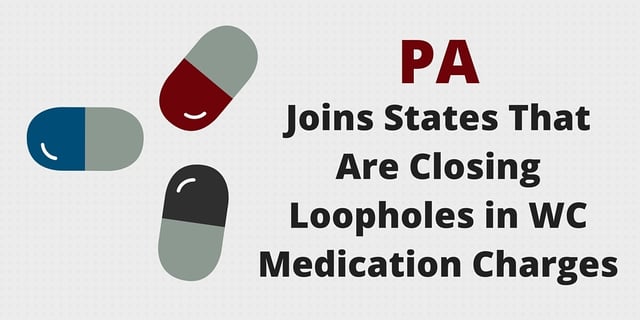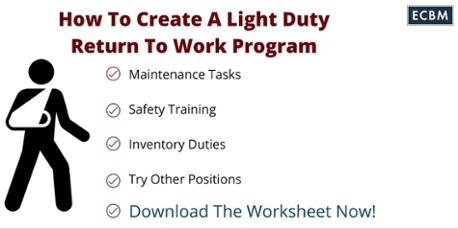
In the normal course of business, when a doctor gives a patient a prescription, the patient fills the prescription at a pharmacy. In the field of worker’s compensation, however, a loophole in many states’ laws has led to the advent of doctors both prescribing and dispensing the medication.
Why Is A Doctor Dispensing Medication An Issue?
Because the law allowed them to charge a significant - and in some cases astronomical - mark-up for doing so. One study found mark-ups in excess of 1000% in some cases involving physician dispensing medication. This cost is passed on to the worker’s compensation system through the reimbursement of medical costs. At the end of the day, those costs gets passed on to employers, either through their insurance premiums or through self-insurance. Estimates have placed the cost of this loophole in the hundreds of millions of dollars.
Scott Nuelle, Transportation Specialist at ECBM explains,
“Studies show that while physician-dispensed medication comes with a significant cost mark-up, patients receiving physician-dispensed medication tend to be on medication longer and take a longer time to return to work, further increasing the stress on the worker’s compensation system.”
The process depends on a number of drug “repackagers,” companies who buy drugs in bulk wholesale and then resell those drugs to doctors for dispensing directly to patients, significantly increasing the average wholesale price as they do so.
Closing These Loopholes
Several states have moved to close this loophole in recent years. When California closed its loophole in 2007 by removing differential pricing for physician-dispensed medication by imposing a stricter fee schedule for pharmaceuticals, it saw the costs of medication drop by 90% in cases involving physician-dispensed medication.
Opponents of closing the loophole argue that the bureaucracy of the worker’s compensation and the need to ensure patients are following their prescribed drug regimen necessitates the loophole.
However, several studies throw these arguments into serious question.
PA's Efforts In Closing The Loopholes And Why It Matters To Employers
Pennsylvania passed Act 184, signed into law on October 27, 2014, which seeks to eliminate the cost of the loophole by imposing a limit on the amount of time for which a physician can dispense Schedule II and III drug: seven days, plus an additional fifteen days for cases involving surgery. The time limit for non-scheduled medication is 30 days. It also caps the mark-up on physician-dispensed medication at 110% of the average wholesale price of the system. Across the southern border in Maryland, however, a similar, less-restrictive bill failed to make it out of the legislature on the last day of the legislative session.
The Pennsylvania bill should lead to significant savings for employers on worker’s compensation insurance moving forward. For those operating in states that have yet to close the loophole, litigation strategies do exist which can negate attempts by physicians and patients to seek a substantial reimbursement above average pharmacy prices for these medications.
ECBM works with its clients to minimize their exposure under either system. We are more than happy to work with you and review your worker’s compensation claims-handling to ensure your exposure to this loophole is as minimized as possible as well as to ensure that our clients are receiving the full effect of savings from the closure of this loophole in the states that have done so.


